 By:
Justin Time
By:
Justin Time
The cannabis cultivation industry is increasingly competitive, requiring innovative techniques and methods to maintain an edge. Amid this, the application of lactic acid bacteria (LAB) in the cultivation process has emerged as an environmentally sustainable and highly effective approach. Harnessing LAB’s potential is gaining traction within the cultivation community, paving the way for greener and more resilient cannabis plants. Here’s an in-depth exploration of the topic.
At the heart of organic farming is the principle of fostering a symbiotic relationship with the natural soil microorganisms. These microbes are nourished, in return enriching the soil with nutrients beneficial for cannabis growth. Among these, LAB stands out due to its potential to enhance the health, growth, and potency of cannabis plants.
Found in various foods, LAB consumes sugars, producing lactic acid as a byproduct. These microbes are not only harmless but are associated with a plethora of benefits for plant health.
Introducing LAB to cannabis plants promotes the growth of trichomes and terpenes – plant compounds essential for the plant’s overall potency. Additionally, the bacteria boost the plant’s growth and enhance its resilience against harmful fungi and bacteria, significantly reducing disease incidence.
The microbial balance in the soil is vital for plant health and productivity, and LAB plays a pivotal role in this aspect. Its function extends to bolstering the plant’s immune system and optimizing the use of fertilizers, which indirectly influences the plant’s size, resilience, and productivity.
In the world of cannabis cultivation, the role of microbes, particularly lactic acid bacteria (LAB), cannot be overstated. As probiotic organisms, LAB brings a host of benefits to the plants they inhabit, with their influence extending to the enhancement of trichome and terpene production – two crucial aspects of cannabis plant health and quality.
In understanding this interaction, it’s essential to first appreciate the structure and function of trichomes and terpenes in cannabis plants. Trichomes, the tiny hair-like outgrowths found on cannabis flowers and leaves, serve as the plant’s defense mechanism against pests and harsh environmental conditions. However, they also have another crucial function – they are the primary sites for the production and storage of terpenes and cannabinoids, the active compounds in cannabis.
Terpenes, on the other hand, are aromatic compounds found in many plants, including cannabis. These compounds are responsible for the unique scent profile of different cannabis strains, ranging from sweet and fruity to earthy and pungent. Beyond just contributing to the plant’s aroma, terpenes also play a significant role in the cannabis plant’s therapeutic effects, interacting with cannabinoids to enhance their potency – a phenomenon known as the “entourage effect.”
When LAB is added to an organic grow system, they work synergistically with the plant’s natural processes to increase trichome production, thereby indirectly promoting the synthesis of terpenes and cannabinoids. They achieve this by creating a balanced soil environment conducive to the plant’s growth and stress response, leading to an increase in trichome density.
Moreover, LAB may directly influence terpene production by modulating the expression of plant genes involved in terpene synthesis. While the specific mechanisms behind this are still being researched, preliminary studies suggest that LAB’s probiotic properties can stimulate the plant’s metabolic processes, leading to an increase in terpene production.
In conclusion, the symbiotic relationship between LAB and cannabis plants profoundly impacts the plants’ health, growth, and overall quality. By fostering a conducive environment and potentially enhancing metabolic processes, LAB significantly boosts trichome and terpene production, thus improving the aroma, flavor, and therapeutic potential of cannabis.
The use of fertilizers in cannabis cultivation is a double-edged sword. While they can provide the necessary nutrients for plant growth, certain types, particularly those that are salt-based, can have adverse effects on the beneficial microbes, including lactic acid bacteria (LAB), residing in the soil.
Salt-based chemical fertilizers, while efficient in delivering high amounts of essential nutrients to the plants, often cause an imbalance in the soil microbiome. High concentrations of salts can create an osmotic pressure differential that leads to the dehydration and eventual death of beneficial microbes like LAB. This not only reduces the overall microbial diversity and density in the soil but also paves the way for the proliferation of harmful bacteria and fungi that can tolerate high salt conditions.
Furthermore, these fertilizers can lead to nutrient runoff, polluting surrounding water sources and affecting biodiversity. They also contribute to soil degradation over time, reducing its fertility and potential for sustainable cultivation in the long term.
On the other hand, the use of natural, organic nutrients can significantly enhance the health and biodiversity of the soil microbiome. Organic fertilizers such as compost, manure, or bone meal slowly release nutrients, ensuring a steady supply over time. This gradual nutrient release pattern closely mirrors natural ecological processes, thus fostering a conducive environment for beneficial microbes, including LAB.
In conclusion, the choice of fertilizers in cannabis cultivation has far-reaching impacts on both the soil microbiome and overall plant health. Opting for organic, natural fertilizers can help preserve beneficial microbes like LAB, enhancing the soil ecosystem and, ultimately, improving the growth and yield of cannabis plants.
Lactobacilli, a subgroup within the lactic acid bacteria (LAB) family, hold notable importance in agriculture due to their multifaceted roles in promoting plant health. These probiotic bacteria contribute to plant growth through multiple avenues.
Firstly, Lactobacilli can produce auxins, a type of plant hormone that plays a crucial role in coordinating various growth and behavioral processes in plants. By influencing auxin production, Lactobacilli indirectly regulate cell elongation, division, and differentiation, thereby fostering overall plant development.
Another avenue through which Lactobacilli stimulate growth is by producing volatile fatty acids. These compounds can act as bio-stimulants, enhancing plant nutrition uptake and metabolic processes, thereby promoting robust growth and development.
Additionally, Lactobacilli synthesize plantericin, an antimicrobial peptide that provides a defense mechanism against a range of plant pathogens. This protective action, along with their inherent antifungal capabilities, allows Lactobacilli to act as biocontrol agents, warding off harmful phytopathogenic bacteria and fungi.
Overall, Lactobacilli create a more conducive environment for plant growth and health, simultaneously enhancing growth and providing protective mechanisms against potential threats. The incorporation of these bacteria in farming practices, therefore, has substantial implications for sustainable and productive agriculture.
Lactic acid bacteria (LAB) are versatile microbes, adapting to a variety of conditions. However, like all living organisms, they do exhibit preferences for certain environmental factors, one of which is pH. The optimal pH range for the growth of LAB strains such as Streptococcus thermophilus, Lactobacillus bulgaricus, and Lactococcus lactis subsp. cremoris lies generally between 5.8 to 6.9. This slightly acidic environment facilitates the growth and metabolic activity of these LAB strains, enabling them to contribute beneficially to plant health.
In the soil, maintaining this pH range can be a delicate balancing act. The soil pH not only affects LAB’s activity but also influences nutrient availability for plants, microbial diversity, and the mobility of harmful elements. Therefore, regular soil pH monitoring and adjustment become critical aspects of a grower’s management practices. This can be achieved using pH adjusters, such as lime for acid soils or sulfur for alkaline soils, or through the addition of organic matter like compost.
Maintaining the right pH balance helps foster a favorable environment for the growth and activity of LAB. When LAB thrives, it promotes nutrient cycling in the soil, enhancing nutrient availability to plants. It also enhances the suppression of pathogens, thereby contributing to disease resistance. As a result, the overall growth and health of cannabis plants are significantly improved.
Furthermore, the pH stability ensures the effectiveness of LAB as a probiotic. This is important as LAB has been shown to enhance terpene and cannabinoid production in cannabis, enhancing the overall quality and potency of the harvest. Therefore, creating optimal growth conditions for LAB can have wide-ranging benefits, making it a key consideration in cannabis cultivation.
The growth and activity of lactic acid bacteria (LAB), like any other microorganism, can be inhibited by specific substances present in their environment. Among these, purine deoxyribonucleotides have been found to have a restrictive effect on certain LAB species, notably Lactobacillus bulgaricus.
Purine deoxyribonucleotides are molecules that play a key role in many biological processes. However, when present in excessive amounts, they can disrupt LAB’s metabolic activities, thereby inhibiting their growth and function. This can compromise LAB’s beneficial effects on the soil microbiome and, consequently, plant health.
Hence, it becomes vital for growers to regularly monitor soil conditions, ensuring that inhibitory substances remain within acceptable ranges. Employing regular soil testing and adjusting farming practices, such as the type of fertilizers used, can help control the presence of these compounds. This way, a conducive environment for LAB can be maintained, maximizing their beneficial contribution to the health and productivity of cannabis plants.
In the broader context of plant health and productivity, the use of probiotics, including LAB and others, offers immense potential. Just as they do in the human gut, these beneficial microorganisms play a critical role in the plant’s rhizosphere, or root zone, by promoting nutrient uptake, stimulating growth, and protecting against harmful pathogens.
Through a symbiotic relationship, probiotics interact with plants to stimulate their growth and bolster their health. They aid in the development of bigger, healthier leaves and flowers, contributing to the plant’s photosynthetic capacity and reproductive success. Moreover, by promoting a stronger root system, probiotics enhance the plant’s ability to absorb water and nutrients from the soil, improving its resilience against environmental stressors. The resultant robust stems provide structural support for the plant, facilitating upright growth and better exposure to sunlight.
Beyond the substantial health benefits, the application of probiotics can also enhance the aesthetic appeal of plants. By fostering the growth of vibrant leaves and flowers, these microorganisms can boost the overall visual attractiveness of the plant, which can be particularly beneficial for ornamental varieties.
In the context of cannabis cultivation, the use of LAB represents a sustainable and effective strategy to enhance plant health, increase yield, and improve the quality of the product. These bacteria not only contribute to a robust cannabis plant but also help maintain a healthy soil ecosystem, essential for sustainable cultivation practices.
The benefits of LAB extend beyond the immediate sphere of the plant and the grower. By reducing the reliance on chemical fertilizers and pesticides, the use of LAB also has broader environmental benefits. It can reduce pollution from agricultural runoff, contribute to biodiversity by maintaining a healthy soil microbiome, and promote sustainable farming practices.
Whether growers choose to introduce LAB through purchased supplements or through homemade preparations, the incorporation of these beneficial bacteria into cultivation practices represents a significant leap forward in sustainable, productive, and environmentally friendly agriculture. As the understanding of these microorganisms continues to evolve, their role in agriculture is set to become even more integral, with applications extending beyond cannabis to the wider world of crops.
Lactic acid bacteria (LAB) offer a sustainable way to enhance cannabis growth, boost trichome production, and prevent fungal infections. Explore how LAB promotes healthier plants and higher yields in organic cultivation.
LAB works symbiotically with cannabis plants to increase the production of aromatic terpenes and trichomes, enhancing both potency and flavor profiles for a superior harvest.
Integrating LAB into cannabis cultivation improves soil health, promotes nutrient uptake, and shields plants from pathogens, ensuring a more resilient and productive grow environment.
[magento_products id=”95,101,65,74″]
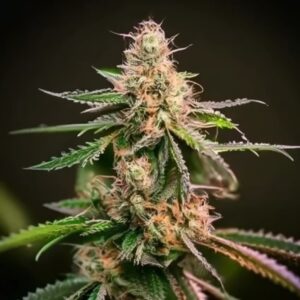


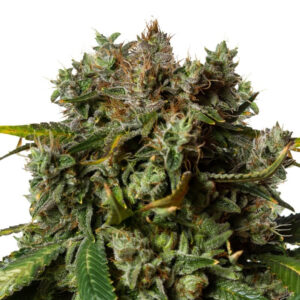

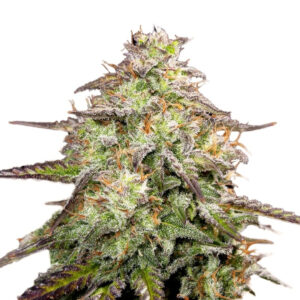
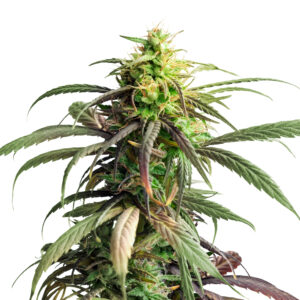






Related Posts
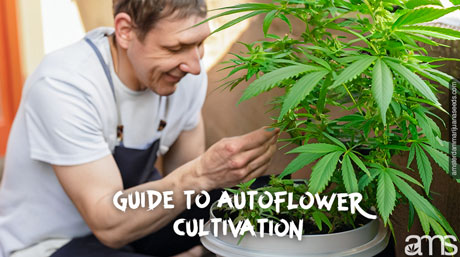
AMS’s autoflower cannabis seeds stand as a shining example of hassle-free cultivation. These seeds symbolize autonomy, seamlessly steering your cannabis plant from germination, through the vegetative phase, and finally into the flowering stage, without any complex intervention or manipulation of light cycles by the cultivator.
Our superior autoflower seeds are carefully designed to generate the highest yield in the shortest…

AMS’s autoflower seeds represent the pinnacle of simple growing. These seeds epitomize self-sufficiency, effortlessly guiding your weed plant from germination, through the vegetative phase, and ultimately into the flowering stage, sans any intricate intervention or manipulation of light cycles by the grower.